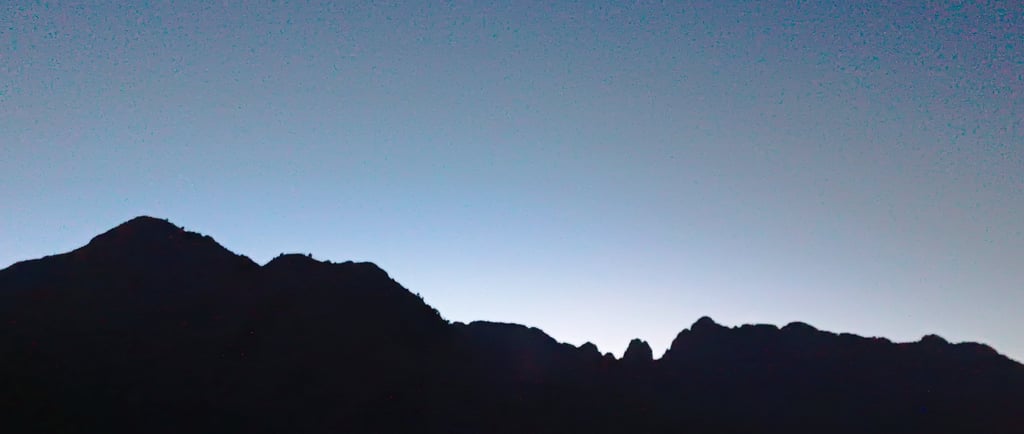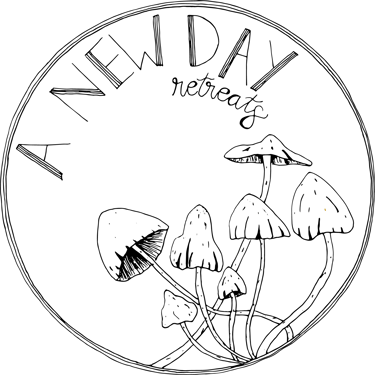Post-psychedelic difficulties and how to cope
Although we have all heard about the amazing potential for healing that psychedelic-assisted therapy holds, we also need to be aware of the risk of longer-term post-psychedelic difficulties.
Ditte
1/29/20243 min read


I feel that it is important to not only focus on the possible immense benefits of psychedelic assisted therapy, but also keep in mind that these experiences can bring difficulties. As wonderfully healing and life changing as psychedelics can be, we must also remember that their use can result in adverse effects and cause difficulties that can last after the psychedelic experience. Here I will go through an article that looks at coping strategies for people who have had a difficult experience following psychedelics.
Coming back together: A qualitative survey study of coping and support strategies used by people to cope with extended difficulties after the use of psychedelic drugs by Oliver C. Robinson, Jules Evans, David Luke, Rosalind McAlpine, Amy Fisher, Eirini Ketzitzidou Argyri, Ashleigh Murphy-Beiner, Katrina Michelle and Ed Prideaux. (https://media2-production.mightynetworks.com/asset/cc52c70d-9c8a-4f40-b0de-85f08338bd49/Coming_back_together_A_qualitative_surve.pdf).
The paper does not specify which type of psychedelic experiences the participants of the study had (at a festival, travelling with random people they didn't know in Asia, at home with a trusted partner, at a retreat centre…) but they do state that post-psychedelic challenges are relatively higher in uncontrolled settings, which isn’t surprising. They also say that, despite the unpleasant nature of bad trips, other researchers have posited that these experiences may hold significant value in unlocking the potential therapeutic benefits of certain substances (Barrett et al., 2016; Carhart-Harris et al., 2016). However, there are also instances where people do not feel that post-psychedelic difficulties were ultimately life-enhancing. Again, there is no details on what kind of settings people did psychedelics in or what kind of support they had before, during and after the session.
When people have felt post-psychedelic difficulties from their psychedelic experiences, there are a number of techniques that people have applied to better cope with those difficulties. The article states that predominant among individual strategies were meditation and prayer, followed by self-educational activities such as reading and journaling. The most prevalent forms of social coping involved seeking support from friends or family members, followed by obtaining assistance from a therapist or coach. The most prevalent feature of social coping found to be helpful was the acting of Talking and feeling heard by others, followed by Acceptance and validation and Shared similar experiences. At A New day Retreats we are happy to provide you with meditations and breathwork sessions (via an online app) that we and others have found beneficial in dealing with stress and post-psychedelic difficulties, and our two psychotherapists are available for you to talk to in a psychedelics-informed and non-judgemental setting should you need professional support to work through your difficulties.
The paper goes through a number of different comping mechanisms that have helped others, including cognitive coping strategies, spiritual self-care strategies, physical coping strategies, self-education strategies, task-based coping strategies, pharmacological coping, social coping, emotional support, instrumental social support, and some found no coping mechanisms worked for them. I suggest you read the article for more detailed information about each coping mechanism and figure out which may work better for you.
The authors make an interesting note, “It is notable from the responses that people experiencing post-psychedelic difficulties are likely to encounter very different diagnoses of their problems if they go to a counsellor, a transpersonal psychotherapist, a psychiatrist or a shaman or guide.” Keep this in mind when you seek support and try to find someone who understands the nature of psychedelics, so that you feel supported rather than judged when choosing to open up to someone about your struggles.
For me personally my main coping strategies are physical exercise, taking time in nature, meditation and talking things through with loved ones, even the ones who don’t understand psychedelics quite the way I do, but who still accept and support that this is my way to find healing.
The authors note that their findings indicate that both social support and self-management techniques are vital components of postpsychedelic care, particularly for navigating challenging experiences and they conclude that more research is needed about post-psychedelic difficulties.
I believe that it is important that you know about the risks involved when taking psychedelics, mostly so that you enter the experience with a realistic mind-set. Anyone telling you that psychedelics will fix you instantly and forever are simply not being truthful. Yes, the research coming out is showing so much potential, and I have felt the incredible healing myself, but we need to be aware of the risks too.
